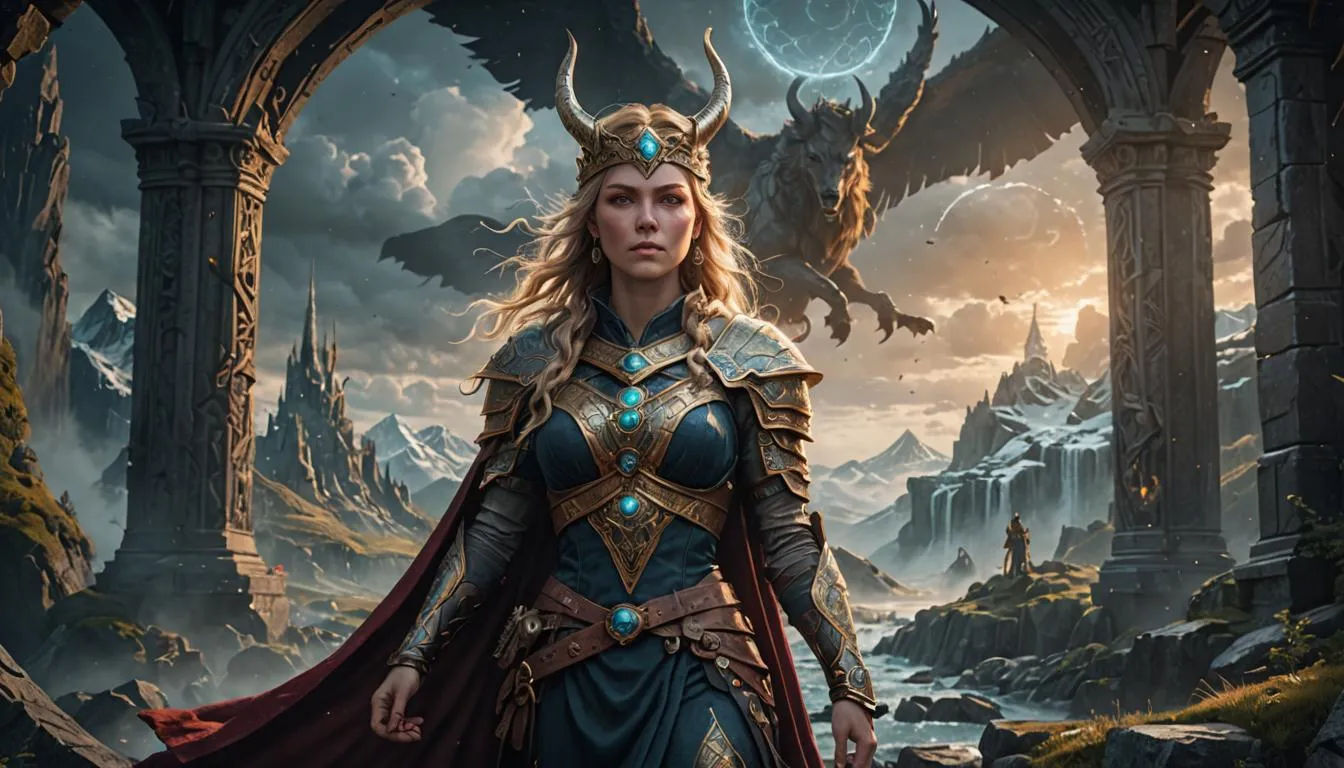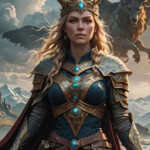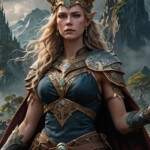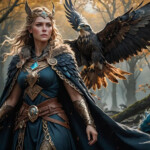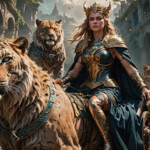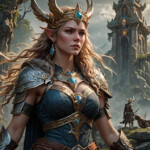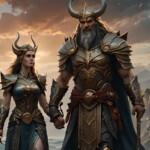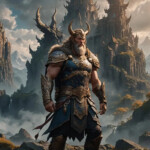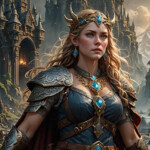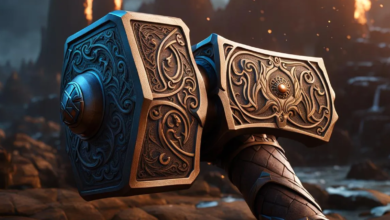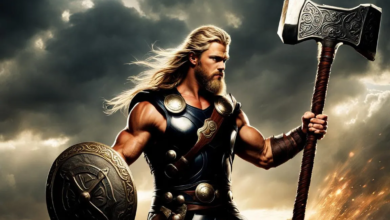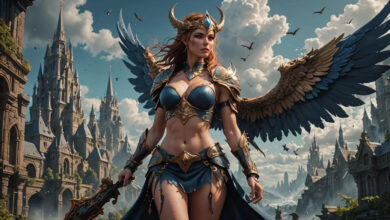Freya: The Enchanting Goddess of Love, Beauty, and War
Freya, the radiant goddess of the Vanir tribe, is a captivating figure in Norse mythology. Her multifaceted nature encompasses love, beauty, fertility, war, and magic, making her one of the most complex and well-loved deities in the Norse pantheon. From her mesmerising beauty to her fierce warrior spirit, Freya continues to capture the imagination of storytellers and scholars alike.
Vision of Beauty and Allure
Freya’s most renowned attribute is her unparalleled beauty. Described as the fairest of all goddesses, she possessed a captivating aura that could charm gods and mortals alike. Her golden hair, often adorned with a magnificent necklace called Brisingamen, flowed like a waterfall. Her presence was said to illuminate any room, and her laughter echoed like the sweetest melody.
Freya’s seductive power extended beyond mere physical beauty. She possessed a magical cloak of falcon feathers, allowing her to transform into a falcon and soar through the skies. This ability symbolised her freedom and connection to the natural world. Freya’s chariot was drawn by magnificent cats, further emphasising her association with the natural world and its untamed beauty.
Love, Fertility, and Passion
Freya’s domain extended far beyond aesthetics. She was revered as the goddess of love, fertility, and passion. Lovers prayed to her for blessings, and she presided over weddings, ensuring a happy and prosperous union. Her association with fertility made her a vital deity for a society reliant on agriculture.
Freya was not merely a passive observer of love. She possessed a powerful charm known as seiðr, a form of magic associated with love, prophecy, and healing. This magic allowed her to influence the emotions of others and manipulate the course of love. However, seiðr was often considered a feminine art, viewed with suspicion by the more traditionally masculine gods like Odin.
A Fierce Warrior Queen
Despite her association with love and beauty, Freya was no damsel in distress. She was a formidable warrior, leading the Valkyries, a band of fierce female warriors who chose who would live and die in battle. Half of those slain in battle went to Odin’s hall, Valhalla, while the other half went to Freya’s realm, Fólkvangr, a lush meadow where warriors could continue to hone their skills in preparation for Ragnarök, the final battle of the gods.
Freya’s warrior nature challenged the traditional gender roles of Norse society. While Odin embodied a more ruthless and strategic form of warfare, Freya’s association with battle was linked to passion, bravery, and the joy of the fight.
A Complicated Love Life
Freya’s love life was a source of much fascination and amusement in Norse mythology. She was married to the god Odur, who personified reason and order. However, their union was not always harmonious. Odur spent much time travelling the world, leaving Freya to use her own devices.
In Odur’s absence, Freya found solace in passionate affairs with other gods and even giants. Her most famous liaison was with the handsome god Freyr, her brother. While some interpretations view their relationship as platonic, others suggest a deeper connection. This blurring of lines between love and familial bonds reflects the complex nature of Norse mythology, where morality is often subjective.
Freya also possessed a prized necklace called Brisingamen, crafted by dwarves. The necklace, symbolising her beauty and power, attracted unwanted attention. Loki, the mischievous trickster god, stole the necklace on one occasion, and Freya was forced to bargain for its return. This incident highlights the vulnerability that accompanies even the most powerful deities.
Freya’s Legacy
Freya’s influence extended beyond the myths. Her association with love and fertility led to her being linked to the Roman goddess Venus, and her name is still echoed in the day of the week, “Friday” (Frīgedæg in Old Norse, meaning “Freya’s Day”).
Freya’s complex and multifaceted nature continues to resonate with us today. She embodies the beauty and allure of femininity, the power of love and passion, and the fierce spirit of a warrior. In a world that often tries to categorise women into neat boxes, Freya reminds us that femininity can encompass a multitude of strengths and desires.
As scholars delve deeper into Norse mythology, Freya’s character continues to evolve. She challenges our preconceived notions of goddesses, showcasing a deity who is both beautiful and fierce, alluring and powerful. Whether depicted as a radiant goddess of love or a formidable warrior queen, Freya remains a captivating figure who continues to inspire and intrigue us centuries after the Viking Age.

